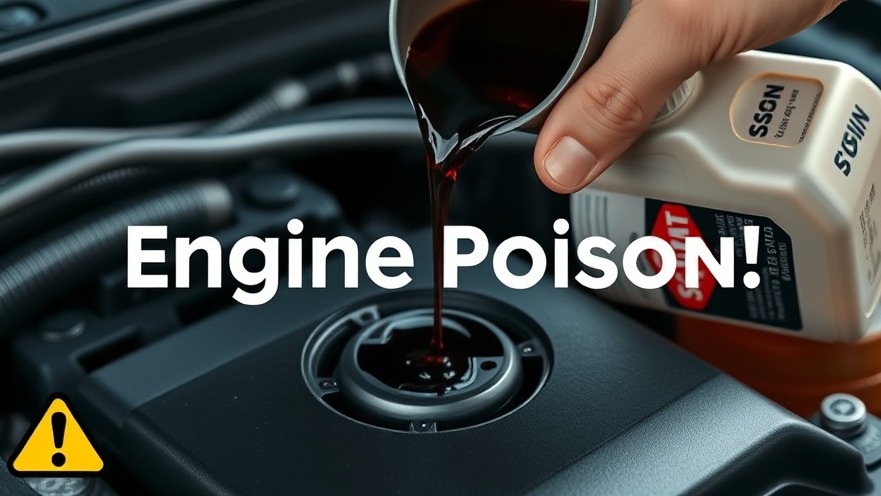
Why Engine Oil Additives Can Be Risky Business
When it comes to maintaining your car, engine oil additives are often marketed as miracle solutions. However, as seen in the gripping analysis from the video NEVER Use These 11 Engine Oil Additives (And 5 That WORK!), what sounds good in theory can often lead to engine disasters. With a plethora of products claiming to enhance performance and prolong engine life, it’s crucial for auto owners to tread carefully.
In NEVER Use These 11 Engine Oil Additives (And 5 That WORK!), the discussion dives into common misconceptions about engine oil additives, exploring key insights that sparked deeper analysis on our end.
The Dangers of Unproven Additives
Various engine oil additives have made headlines not only for their promises but also for the catastrophic failures they've caused. For instance, PTFE or Teflon-based additives might seem appealing due to the friction-reducing claims, yet they clump, lead to sludge buildup, and cause blockages in oil passages. Imagine pouring melted plastic into your engine; that's essentially what happens.
Corrosive Chemistry: Understanding Harmful Additives
Chlorinated paraffins, often found in extreme pressure oil treatments, can degrade into hydrochloric acid under heat, eating away at critical engine components. It's vital to look for well-researched products instead of adding mystery chemistry to your crankcase.
Too Much of a Good Thing: Overloading on ZDDP
The case of zinc overload with ZDDP boosts illustrates another misconception: more is not always better. Modern engines equipped with catalytic converters react negatively to excessive zinc, leading to expensive repairs. Learning when additives hurt rather than help is paramount for the longevity of your vehicle.
Recognizing Effective Products: What Works?
Contrary to the plethora of harmful additives, reliable products do exist. Liqui Moly’s MOS2 Anti-Friction and BG Motor Oil Additive are examples of trusted solutions that enhance oil stability and protect your engine under stress. They stand out because of their solid lab testing and real-world effectiveness.
Making Informed Decisions: Avoid Guesswork
As an auto owner, understanding the risks associated with various additives empowers you to make informed choices. Labels touting “mystery ingredients” should raise red flags. If a company won’t disclose their full ingredient list, it's best to steer clear. Quality products should be transparent about what they contain and how they benefit your engine.
Conclusion: Protect Your Engine with Knowledge
Motor oil additives can promise enhanced performance, but many end up causing damage instead. With the insights gained from analyzing engine oil additives and their effects, auto owners can avoid costly mistakes. Remember, when searching for reliable products, look for those with proven benefits. Trust your instincts and prioritize transparency in product labeling.
To further enhance your vehicle's performance, it's wise to stay updated on engine maintenance and care tips. Making informed choices means keeping your car running smoothly for years to come.
 Add Row
Add Row  Add
Add 




Write A Comment